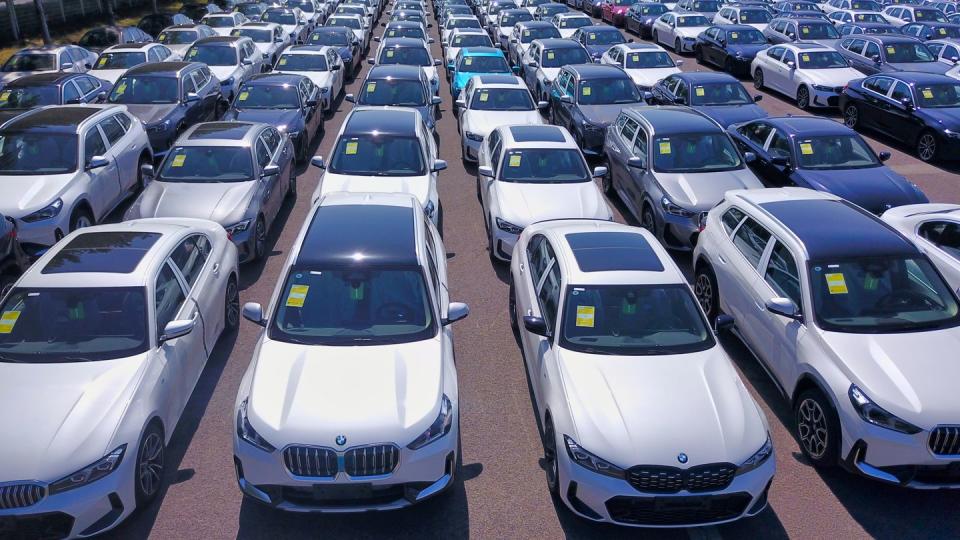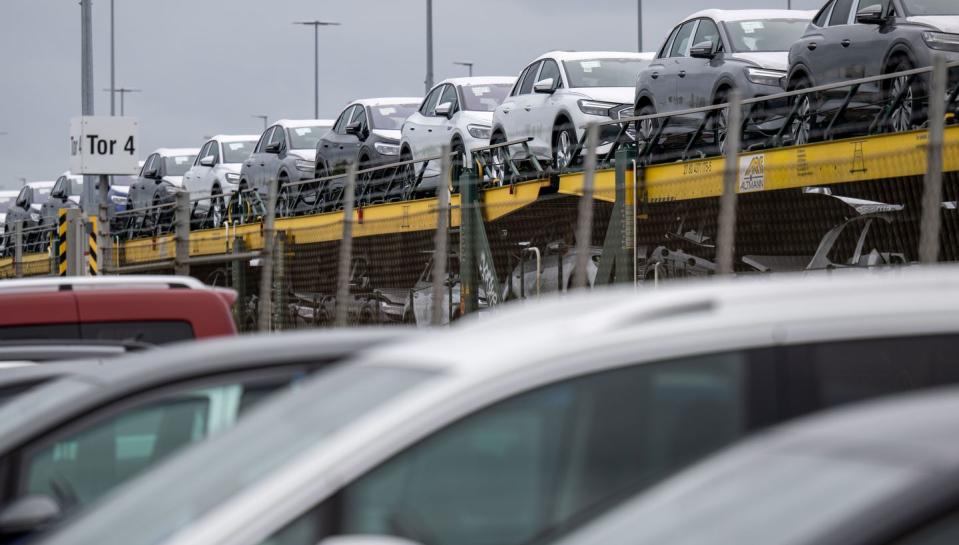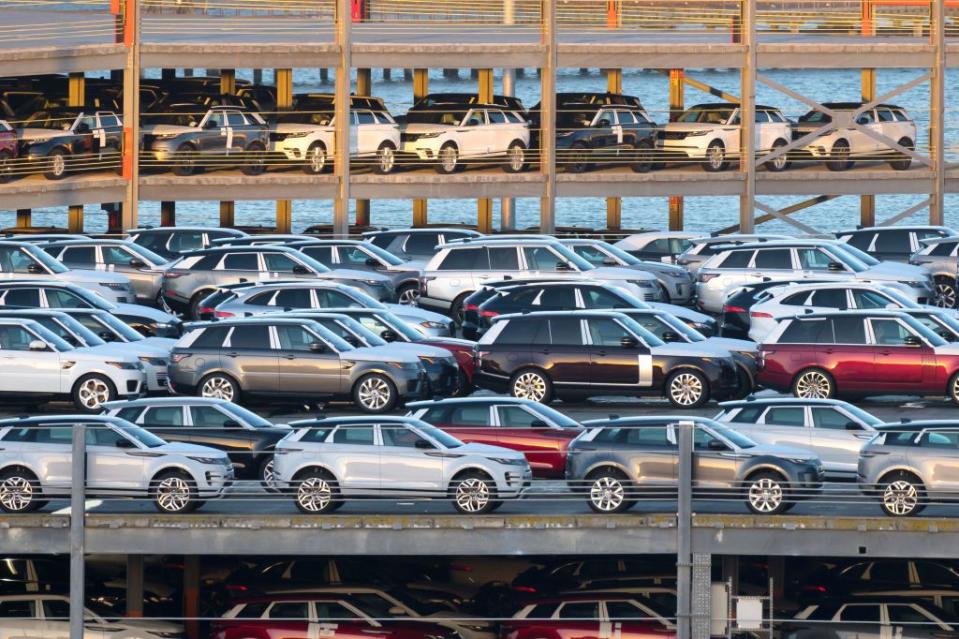BMW, VW, Jaguar Land Rover Named in Illegal Chinese Imports Crackdown

Several European automakers have been caught importing cars into the U.S. with illegal, Chinese-manufactured parts, according to a report by Senate Finance Committee Chairman Ron Wyden. BMW, Volkswagen, and Jaguar Land Rover are specifically named in the report after parts produced in violation of the Uygur Forced Labor Prevention Act were found in thousands of models brought stateside.
Specifically, around 8000 Mini Cooper models with parts from Chinese suppliers banned under the 2021 law were sold in the U.S., with the report saying that BMW continued importing vehicles with the banned components until April 2024. Volkswagen admitted in February that a shipment of its U.S.-bound vehicles also included parts made by a blacklisted supplier.

Jaguar Land Rover's involvement is somewhat less intense, with a series of the banned spare parts arriving stateside. The Senate report says the automaker quarantined all existing inventory with links to the banned parts globally and set them for destruction. Upon learning of the issue, a JLR spokesperson told Reuters the company immediately ceased shipment of "the two affected aftermarket service parts."
The illegal parts arrived in the U.S. through a distributor known as Bourns Inc., a California-based auto supplier. The California company had allegedly sourced its components from Sichuan Jingweida Technology Group, a company that was added to the banned supplier list last December. Once the parts were imported by Bourns, BMW, JLR, and VW received the components from the Lear Corporation, who notified the automakers of the problem in January.

The legislative pushback against these specific parts from China stems from reports of forced labor in the nation's Xinjiang region against the country's Uyghur minority group. China has denied these allegations. Parts made whole or partly in Xinjiang fall under the 2021 law and can be seized at U.S. ports of entry.
The Senate reports allege that BMW ceased imports only after the committee repeatedly queried Lear’s OEM customers (BMW) about their relationship with JWD. Volkswagen voluntarily disclosed the issue to Customs and Border Protection, in turn holding several thousand Porsche, Bentley, and Audi models at U.S. ports earlier this year. Volvo also received parts from the banned suppliers, though the Swedish manufacturer said it hadn't used them yet.
"Automakers are sticking their heads in the sand and then swearing they can’t find any forced labor in their supply chains," said the Senate Finance Committee’s Democratic chairman Ron Wyden. "I’m calling on Customs and Border Protection to take several specific steps to supercharge enforcement and crack down on companies that fuel the shameful use of forced labor in China."
To remedy the immediate issue, BMW says it will halt the importation of affected products and issue a service action to replace the affected parts. Volkswagen has already replaced all the affected parts to release vehicles being held at U.S. ports, according to a statement to Reuters on Monday.
You Might Also Like

 Yahoo Finance
Yahoo Finance 